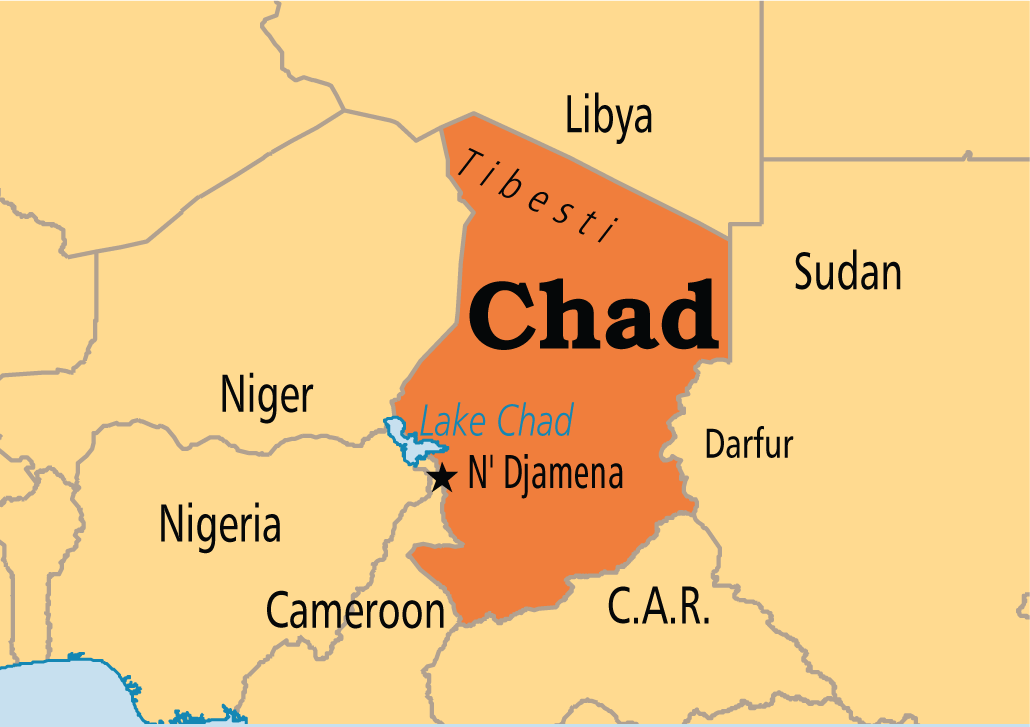Our next door neighbour, the Republic of Chad, has, from my perspectives, always been a sleeping volcano, ready to erupt at any given moment, to the discomfiture of its neighbours. We have witnessed its eruption 40 years or so ago – an eruption that lasted for a considerable period with immense political and economic consequences for all the neighbours, particularly Nigeria. The 30-years-long reign of the strongman, Idriss Deby, brought some relief to Chad and succour to its neighbours. However, his death last week in a reportedly adventurous fight against the country’s rebel, once again has put to bold relief the lurking dangers in the Chad Republic, a country that seems to be permanently at war with itself.
Chad, like Nigeria and many other countries in the sub-region, fell into bouts of political instability leading to wars, when soldiers first tasted the forbidden fruit by overthrowing legitimate governments. Francoise Tombalbaye, Chad’s President since independence in 1960 was overthrown by a coterie of soldiers in 1975 following agitations and rebellion by elements in the northern parts of Chad opposed to Tombalbaye and actively encouraged by Libya’s Gaddafi. The new military regime installed General Felix Malloum, Tombalbaye’s former Chief of Staff, as the new President. The insurgents did not relent until General Malloum himself was ousted in 1979.
- Thousands flee homes as B/Haram holds Geidam
- Greenfield University: Northern govs condemn killing of students
Led by Hissene Habre, the insurgents occupied N’Djamena but quarrels over sharing the spoils of office distracted and preoccupied them for months until Nigeria intervened by bringing all the war lords to Kano, Bagauda Lake Resort, for a peace conference. Though the conference brought some relief to the country by installing Goukouni Oueddei as President, the incessant quarrels did not subside until Hissine Habre, the Defence Minister, got rid of the President in 1982 and seized overall control. The deposed President, Goukouni and his acolytes just fled to the North and continued being irritants to Habre for many years.
I recall visiting N’Djamena in 1987 at the height of Habre’s rule. I was in the entourage of the Borno State Military Governor, Col Abdulmuminu Aminu, who went to deliver a message from President Babangida. When we visited Habre, then president, I found that he lived in what was for all practical purposes a fortress, surrounded by his loyal northern troops brandishing all sorts of weapons. Chad was then actively at war and it showed everywhere. The roads in particular were in a deplorable condition. The major highway to N’Djamena from Koussouri, the link Cameroon town from our own Gamboru Ngala, was not more than a dirt road. Our vehicles literally clattered over the rickety road into N’Djamena. The insecurity within the city was palpable. Wherever you looked, everybody seemed to be holding a weapon.
I recall paying a visit to a relation and while chatting with him heard rattle of gunfire from the direction of the market. I was apprehensive and agitated, but my hosts calmed me down by telling me that: ‘Don’t worry. May be they are just settling a small quarrel.’ Two years later I was privileged to return to N’djamena in the entourage of Col Abdu One Mohammed, Borno State Military Governor. There wasn’t even a marginal difference in the intervening period. We made the same kind of visit to President Habre and to me it looked like he was virtually living a besieged existence. His residence was even more fortified. It was to me a wonder that just a year later Idriss Deby, leading a rebellion, shot his way and drove him out into exile.
Readers may wonder why all the worry about Chad. We have extensive land borders with Niger, Cameroon and Benin but with Chad we only have strips of land border and all of it on the lake. Yet it is Chad that preoccupies us. This is even more evident in Borno State which shares extensive borders with Niger and Cameroun, and the strips of land on the lake with Chad. Maiduguri is just under three hours’ journey to N’Djamena, the capital of Chad while journeys to Niamey capital of Niger and Younde the capital of Cameroon could take more than a day. In any case most of Chad had been part of the Borno Kingdom for centuries until the arrival of the interfering European interlopers. Many of the ethnic groups in Chad, the Kanembu, Kotoko, Shuwa are Kanuri speaking. Economic ties are very intimate. N’djamena is the gateway to lucrative markets in Central Africa, Sudan and Libya. Commercial interests in Maiduguri are intrinsically tied to those in N’Djamena. Sadly, all these avenues and opportunities are now lost to the Boko Haram insurgency which has effectively blocked them in the last many years.
In Chad the main worry is not even the Boko Haram insurgents. Those were effectively checkmated by Idriss Deby. The main worry could be the insurgency in the north. Northern Chad shares borders with Libya and Dafur in Sudan, parts of that have been at war and ungovernable for years. Deby himself, whose defences we all thought were impregnable, lost his life in the hands of these rebels. It is legitimate for Nigeria and its neighbours to be jittery, hoping that his son, the new Chadian strongman, General Mahamat Idriss Deby will rise to the occasion.

 Join Daily Trust WhatsApp Community For Quick Access To News and Happenings Around You.
Join Daily Trust WhatsApp Community For Quick Access To News and Happenings Around You.


